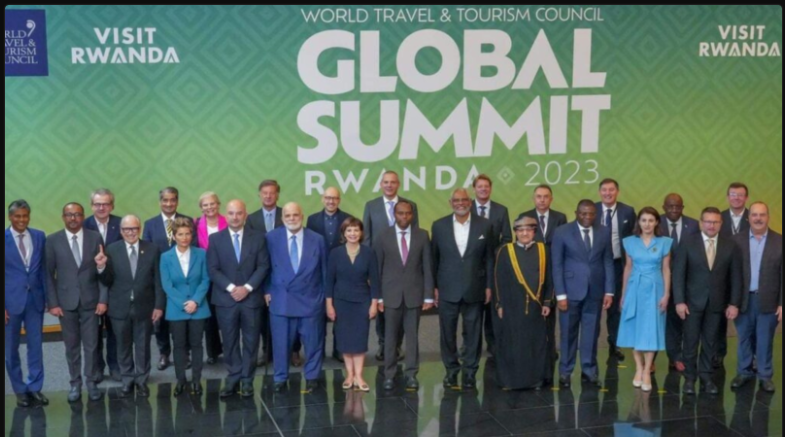
Africa long celebrated for its diverse cultures, majestic landscapes, and rich history, is experiencing a tourism renaissance. Today, the continent stands as one of the world’s most exciting destinations, drawing adventurers, history buffs, and eco-tourists alike. From the sweeping savannahs of East Africa to the bustling souks of North Africa, and the vibrant festivals in West Africa, the tourism sector is on the rise, showcasing the continent’s untapped potential.
Countries like Kenya, South Africa, Egypt, and Morocco have long been known for their tourist appeal. Kenya’s Maasai Mara and Tanzania’s Serengeti National Park have become iconic destinations for wildlife safaris, while South Africa’s Cape Town remains one of the world’s most scenic cities. Egypt’s ancient pyramids and the historic Nile River continue to captivate visitors, blending antiquity with modern-day luxury.
However other African nations are emerging as tourism hotspots. Rwanda has gained international recognition for its mountain gorillas, with eco-tourism thriving in its lush rainforests. Botswana, with its pristine Okavango Delta, offers unparalleled wildlife experiences, while Ghana and Senegal attract visitors with their rich cultural heritage and deep connections to African history and the transatlantic slave trade.
Eco-tourism is one of Africa’s fastest-growing sectors, reflecting a global shift toward more sustainable travel. Countries like Uganda and Namibia have positioned themselves as eco-tourism destinations, promoting responsible travel practices while preserving their natural landscapes. Gorilla trekking in Rwanda and Uganda is a prime example, with conservation efforts intertwined with tourism to ensure that these endangered species are protected.
Similarly, Botswana’s conservation-focused tourism model has become a global example of how to marry economic growth with environmental sustainability. The nation’s “high-value, low-impact” tourism strategy has been widely praised, ensuring that while tourists flock to its national parks, the environment remains protected from the pressures of mass tourism.

Africa’s cultural tourism is as diverse as the continent itself. From the Zulu dances of South Africa to the Tuareg culture of the Sahara Desert, Africa’s rich traditions are drawing cultural explorers. In countries like Ethiopia, ancient sites like Lalibela and Axum are at the forefront of religious and historical tourism, while Nigeria’s bustling cities of Lagos and Abuja attract visitors with their lively arts scenes and Nollywood film culture.
West African countries like Ghana and Senegal, with their poignant slave trade history, have seen a surge in heritage tourism from the African diaspora. Initiatives like Ghana’s Year of Return in 2019 sparked renewed interest among African-Americans and others in retracing their ancestral roots, while Senegal’s Goree Island offers a sobering yet important historical experience.
Luxury travel is also making its mark in Africa, with high-end resorts, exclusive safaris, and personalized travel experiences becoming more accessible. From private islands in the Seychelles to lavish safari lodges in Zambia, Africa’s luxury travel industry is blossoming. South Africa, Kenya, and Mauritius are popular for those seeking high-end experiences with a mix of adventure and relaxation.
On the other hand, adventure travel is booming. Visitors are drawn to the thrill of climbing Mount Kilimanjaro, hiking through the Rwenzori Mountains, or exploring the sand dunes of Namibia. The Sahara Desert, offering camel treks and starlit nights, provides a unique experience for those seeking a more rugged, off-the-beaten-path adventure.
While Africa’s tourism potential is enormous, the continent faces significant challenges. Infrastructure development remains a critical issue, with many remote tourist destinations difficult to access. Political instability, such as ongoing conflicts in parts of West and Central Africa, can deter visitors. Additionally, visa restrictions, inadequate marketing, and concerns over health and safety have posed barriers to growth.
However opportunities abound. Governments and private enterprises are increasingly investing in tourism infrastructure, while regional collaborations like the African Union’s Single African Air Transport Market initiative are making it easier to travel across the continent. Many countries are also easing visa regulations to boost tourism, such as Ethiopia’s e-visa program and Rwanda’s visa-on-arrival policy for all African citizens.
Despite its challenges, Africa’s tourism industry is poised for continued growth. With the rise of sustainable and cultural tourism, the continent is uniquely positioned to offer diverse, authentic, and transformative travel experiences. As African nations continue to invest in infrastructure, promote conservation, and showcase their rich heritage, the world is waking up to the boundless beauty and diversity that Africa has to offer. In the years to come, Africa could become not just a destination for adventurous travelers but a global tourism powerhouse, unlocking its full potential and rewriting the narrative of the continent’s place on the world stage.
Ennywealth


